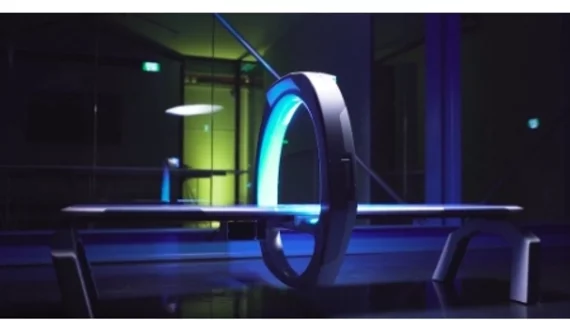Imaging disrupter Nanox inks $174M deal to distribute 1,000 x-ray scanners
Israeli startup Nanox announced Monday that it’s inked a deal to distribute 1,000 of its futuristic, low-cost x-ray systems, targeting geographies that lack access to imaging.
Officials said Monday that they’ve reached an agreement with the Gateway Group, a Down Under distributor, aiming to deploy its Nanox.ARC in Australia, New Zealand and Norway. The systems are purported to offer an array of imaging services—ranging from 2D x-ray to 3D tomosynthesis—but at a fraction of the cost and footprint of traditional systems.
Nanox said the deal will stretch across three years, with Gateway guaranteeing a minimum service fee of $58 million annually. The systems operate on a pay-per-scan business model and also include cloud storage and artificial intelligence components.
"We plan to reach even the most remote locations on the globe with advanced medical imaging services,” Ran Poliakine, founder and CEO of Nanox, said in a statement. “We want medical imaging to be available in rural areas as well as major cities alike, and we look forward to working with the team at Gateway to help us realize this social agenda.”
Nanox previously announced in February that it had signed a similar deal with Siemens-backed teleradiology provider USARad for 3,000 of its systems in the U.S. Both deals are contingent on the Neve Ilan, Israel, company receiving regulatory approval for its system. Nanox also announced in January that it had ballooned its fundraising total to $55 million, thanks to investors such as Fujifilm and Foxconn. It hopes to eventually reach 6,000 freestanding imaging centers, 7,600 urgent care clinics and thousands more doc practices across the U.S., officials said.

